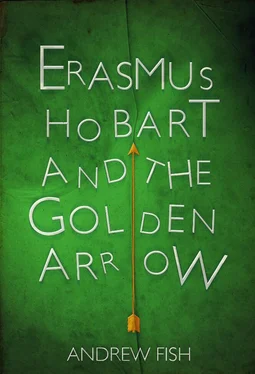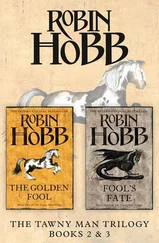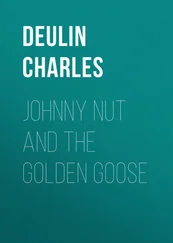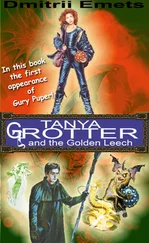The room was small, dark and dusty. The scarce amount of moonlight from the skylight revealing its contents to be a desk strewn with papers, two wardrobes, some steel racks and a single, bare light-bulb, currently switched off and hanging from the ceiling. It was also silent, as one would expect from a disused storeroom in a school after the children had long since gone home. A draught from under the door wafted in, toyed with some of the paperwork then left, evidently finding little to occupy its interest. Eventually, even the moon disappeared behind a cloud, as if popping off to find something more significant to illuminate.
It was whilst both wind and moon were absent from their posts that the room came to life: at first it was just a gentle breeze that seemed to blow from every corner of the room at the same time, then as the paperwork began to rise from the desk and distribute itself across the floor there was a sound like a box of firecrackers being dropped into a furnace. As the echoes of the sound died away the paperwork fell to the floor and in the room stood a large, wooden structure where no such item had previously been.
After a few moments, the door to the structure opened and a man dashed out, reached for the light switch and flooded the room with a warm, yellow light. The man was slight of build, but without any suggestion of athleticism. His hair was like a study in chaos conducted by a man who, far from keeping his pencils in size order, rarely kept them in the same place as each other. His face, flushed as it was with recent exertions, was otherwise unobtrusive: youngish, free from the lines of age or scars of experience, but with a glint in the eyes which suggested a man more knowledgeable than his years would usually belie and a warmth suggesting he was comfortable in that knowledge.
Erasmus Hobart, to his understanding the first time traveller in human history (or at least the first to depart – there was no telling where subsequent travellers might arrive), wiped the sweat from his brow and made a half-hearted attempt to gather up some of the scattered paperwork from around the room. Somehow the mundane nature of this task was made all the worse by the fact that what had gone before had been in such stark contrast.
He turned back to the stout, wooden privy that stood conspicuously in the middle of the room. It wasn’t an obvious addition to a teacher’s storeroom – even a school as old as St Cuthbert’s had plumbing – but were any inquisitive soul to guess at the reason for its presence, it was remarkably unlikely that they would have guessed remotely correctly. Erasmus’ experiments in time had remained a secret for almost two years now, from the earliest sending of inanimate objects to a few minutes before or hence, right up to his first personal trips, and the teacher had managed to avoid all questions, even when the topic of conversation moved to the distinct lack of 2B pencils.
He ran his hands over the surface of the time machine: it was warm, but not unduly so. Erasmus had often been concerned about the potential thermal effects of time travel: his early experiments, when he had sent small, unmanned devices a few minutes backwards or forwards in time, had invariably resulted in the machine getting extremely hot, which Erasmus assumed to be due to some kind of temporal friction. The chance occasion on which he had, due to budgetary restraints, made one of his experimental models out of wood he had been pleasantly surprised to find it was entirely unaffected. Pleasantly surprised because not only did it mean he could build a machine which wouldn’t spontaneously combust the moment you went farther than a week from home without having to find some exotic and undoubtedly expensive metal, it also allowed him to build one which wouldn’t appear out of place through most of recorded history. A time machine made from adamantium might well be extremely cool and wonderfully durable, but it would stick out like a sore thumb in the middle of a tenth-century village.
He gave the machine a final pat then let out a violent exclamation as he snagged his thumb on a rough edge, giving himself a splinter. Hurriedly closing the storeroom door, he headed out into the classroom, his thumb in his mouth. He rummaged through the drawers of his desk, looking for something small and sharp to extract the splinter. Eventually, he located a pair of tweezers and was just closing the drawer when a shadow fell across his desk. He looked up into the wrinkled, frowning face of the school’s headmaster.
‘Evening, Clarence,’ Erasmus greeted him politely.
The headmaster bristled visibly: he hadn’t spent thirty years studying, teaching and clambering his way up the greasy pole to be referred to as Clarence. Particularly not by teachers who were barely out of university. Feeling that complaint would achieve little, however, he reserved his indignation for a particularly loud snort.
Erasmus gave a concerned smile. ‘Are you coming down with something?’ he asked.
Clarence chose to ignore the comment. ‘You’re here rather late, Mr Hobart,’ he observed; his manner clipped and deliberately formal like a sergeant major striving to resist a speech impediment.
Erasmus looked up at the clock, which gave the time as a quarter to nine. Time had obviously passed in the present whilst he was in the past, which was interesting. Perhaps there was some kind of chronological concept of now for a given life form? He wondered whether the relationship was a one-to-one affair, or whether he could expect to go away for a week only to find that a year had passed in his own time.
Clarence tapped his foot impatiently until Erasmus regained his concentration and returned his gaze. The teacher looked at the headmaster with curiosity, as if only just aware of his presence.
‘I said, “You’re here rather late,” Mr Hobart.’
‘I know,’ said Erasmus. ‘But you know how it is. You start on the marking and before you know it the kids are back.’
‘And have you been here all the time?’
‘Hmm?’
‘Have you been out?’
Erasmus considered this, then gestured towards the door which separated the classroom from the school beyond. ‘I assure you, Clarence, I have not been through that door all evening,’ he said.
The headmaster’s expression flickered between doubt and satisfaction. Despite his misgivings over Erasmus’ sense of decorum, if the teacher’s claim was true he could only wish the rest of the staff would show the same level of dedication – perhaps then the school would be higher in the league tables. He glanced at the blackboard: it was covered in squiggles which, to his eyes, were an unintelligible mess. He felt no shame at his inability to comprehend the information – after all, he’d studied Latin at university, not this newfangled nonsense.
‘Is that for your history class?’ he said.
Erasmus looked at the board himself, as if seeing it for the first time. ‘No,’ he said. ‘That’s physics.’
‘It looks very complicated,’ said the headmaster, caught between trying not to sound ignorant and wondering what Erasmus was doing scribbling physics notes on the blackboard of the history room.
‘Yes. I presume you didn’t come here to compliment me on my level of education, Clarence. What can I do for you?’
‘I was wondering if you’d seen anybody lurking about.’
‘This evening, you mean?’
‘Yes.’
‘Anyone in particular, or are you just hoping for company?’
The headmaster wrung his hands awkwardly. He wished that, of all his teachers, he could have found someone other than Hobart on the premises. The others might have been less dedicated, but they at least answered questions when prompted. Hobart could be astoundingly vague, and it was never clear if this was an act.
Читать дальше











